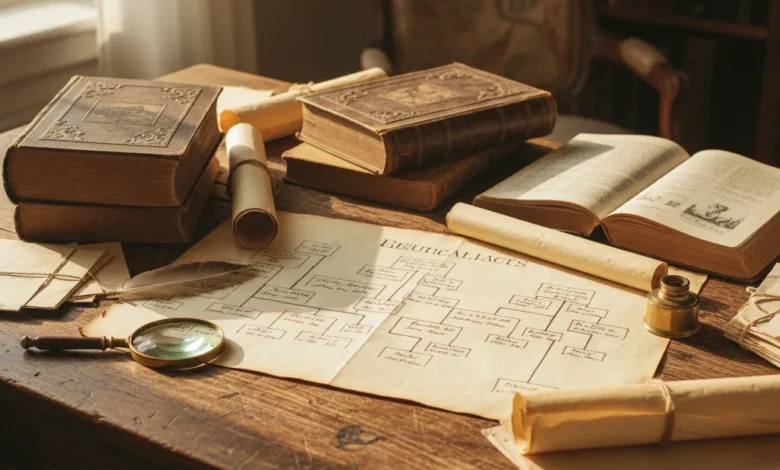What is Pabington? Secrets Stories and Modern Insights

What, in fact, is pabington? It is not a word you encounter every day, yet when it occurs, it draws attention in. Perhaps you noticed it in some family record, or perhaps in a book, or perhaps through an online search. Whatever brought you here, one thing is clear: pabington has a story of its own. And these stories are the kind that merit telling.
In this article, we will delve into the pabingtons, from whence it came, how it was formerly used, and why it still matters today. Think of this as something of a friendly conversation in which I am attempting to answer the very questions you would put out over the telephone: What does it mean? Where did it start? Why does it matter now? Along the way, the facts will come into being, some more myths will be debunked, and you will have some useful insights into the position of pabington in history and contemporary culture.
Table of contents
- Tracing the possible etymology and linguistic roots of pabington
- History of pabington: its origins culture and evolution
- Some present contexts of using pabington
- key characteristics of pabington that render it unusual, often by-passed?
- How pabington arose an internet meme and cultural symbol
- A discussion on pabington versus paddington and how that confusion really arises
- How pabington has become part of genealogical and family history research
- Conclusion
- FAQs
Tracing the possible etymology and linguistic roots of pabington
When you first hear the word pabington, it sounds like any English surname. This isn’t a coincidence. Many English surnames were made centuries ago in order to link people to places: “from Cambridge,” “from Wellington,” “and so forth.” Pabington fits that habit.
Though actual records are scant, these naming conventions derive from medieval England. For example, many places used the “-ton” suffix to signify a town or settlement. So, pabington could have once denoted a name of a small village or estate or other forms of community. The families bearing this name may have slowly passed it on as a surname from generation to generation.
These days, given online searches for pabington, most people will find it mentioned alongside a handful in genealogical records. What began as a mere descriptor of a place has now become a symbol of identity and heritage. This is what makes this word fascinating: it is not merely about lingual aspects; it is about people and how they related to their heritage.
History of pabington: its origins culture and evolution
Early Mentions and Origins
Finding the earliest mentions of pabington is next to impossible, but the style dates it to medieval English times. At that time, surnames were still beginning to form, often off of occupations, attributes, or locations. Pabington apparently belongs in the “location” category, probably marking some interaction of a person “from Pabington.”
Cultural References and Legacy
As names developed, their vestiges of the past wore away. However, like an umbilical cord, the surname remained alive. Pabington could weave its way in and out of mention in family trees, wills, or property documents. Understood to be rare but would remain a thread, nonetheless, sewn into the larger fabric of English society.
Evolution of the Name Through Time
The whole flow of pabington went to parchment records. With the computerized age, all documents were scanned through servers and indexed. Thus, family researchers became aware of the name while conducting online searches. Every appearance, be it in a census, a book, or a parish register, adds one more piece of the puzzle. The very fact that it can leap from medieval origins to modern database cloud paints pabington as a living connection across time.
Some present contexts of using pabington
You would be surprised to learn that pabington, as a name, has not vanished; rather, it has adapted. The surname links an entire family group to its English history. Those whom you will find in the present day carrying the name usually ask the question of its weird spelling and history behind it.
As a reference to a place, pabington occasionally appears in records, but perhaps that original village may not exist much like how it was in the past. Since the place might have disappeared, the name preserved its distinction by families.
In cyberspace, it has come to be subsumed into a second life. Genealogy sites, family-search platforms, or casual discussions about the topic keep the word floating. It is one of those rare naming phrases that intrigue, and in this day and age of the searchable identity, that intrigue provides it with more exposure.
key characteristics of pabington that render it unusual, often by-passed?
This section is in the bullet points:
- Rare yet memorable: Unlike common surnames, it is instantly recognizable.
- Historical resonance: Its structure connects it to medieval England.
- Ease of discovery: Its unusual spelling makes it easier to track in modern searches.
- Dual nature: It functions both as a surname and a possible place reference.
- Cultural intrigue: Its rarity makes people want to know the story behind it.
How pabington arose an internet meme and cultural symbol
Meme Origins
A culture where rare words sometimes catch fire is the one pertaining to an internet. It is one of those words that people pick up, contend with, and convert into a reference. It could start from a very unsure joke about its confounding with Liz Paddington; from there, it has gone on to develop a life all its own.
Spread
You could say there is nothing mainstream about its spread; however, it enhanced its niche-like evolution and grew into something of a meme in narrow confines. In such spaces, the word has quite the playful meanings; therefore, for some, it is an inside joke, for others, just an amusing little insult.
Current Understanding
Currently, pabington works in two ways: one as a surname with bona fide historical connections, the other with its online cultural capitalization, bringing together serious heritage and casual joking. This mix of meanings is what makes it interesting.
A discussion on pabington versus paddington and how that confusion really arises
It is among the many names that can easily be confused with Paddington. It may seem like a small distinction, but they have completely different meanings. For one, Paddington is known as a station in London and the lovely bear whose stories are read by children from all four corners of the world. Pabington, however, is something entirely distinct and carries its own historical weight.
So this confusion keeps putting in the public eye, as the words lead searchers to barge onto the Paddington pages before realizing they have stumbled upon something else. That moment of realizing things are different then excites curiosity in the searchers who dig further into pabington’s history.
How pabington has become part of genealogical and family history research
On the off chance that you have ever indulged in genealogy, you nose-dive right into funky names and chase after collecting some cool finds. For family researchers is like a precious stone. Each occurrence really shines out very clearly because it is rare. In contrast to all the common names where one has to slog through thousands of records it actually leads one to a smaller, more focused mound of documents.
Most common findings are in parish registers, census lists, or even some estate documents. Each one is a glimpse into the past. It could provide English roots for families such that they could end up being tied to a specific area or lineage; in some cases, it even serves as a key clue unlocking wider branches of a family tree.
That is why it is worth tracking in family history: not because it is a name, but because it is a trail of breadcrumbs that leads somewhere.
You also like: Adenoidid
Conclusion
What did we learn? Pabington is not just an unusual word; it is also a bridge from the past into the present. It is quite possibly a place-based medieval surname and might be called somewhere surprisingly within digital culture; either way, pabington continues to wield interest.
Everything on pabington, be it in family research, archives, or as part of an online gag, does not mean more than a string of letters. It brings with it history, identity, and modern intrigue. That is exactly what it is all about today.
FAQs
Q1: What is pabington most likely recognized for?
Although often toyed around with as a surname, pabington is mostly linked to English origin and records.
Q2: Is pabington a place or one exclusively a surname?
Today it is primarily a surname but was probably name of a place used by families.
Q3: How is pabington supposed to be used in a sentence?
A proper noun, either as a surname or in itself when referencing historical documents.
Q4: How is pabington gaining a lot of visibility online?
Pabington has been more readily found because of increasing genealogy websites and digitized records.
Q5: Is pabington able to connect people to their family’s past?
Yes, it can be found on genealogical databases and family trees, which is often but not always as a unique marker.





